|
|
|
Editor's note
|
|
From Hong Kong to Chile, France to Lebanon and Iraq to Bolivia, protest movements have shaken governments across the world in 2019. Each of these protests have stemmed from different triggers and been met with different reactions by those in power – though in many cases with extreme and deadly state violence. Meanwhile, the climate emergency has brought people around the world onto the streets en masse in anger – and rebellion – at inaction from political leaders.
Alongside analysis providing context to the protests around the world, particularly in Hong Kong, we’ve looked at wider issues surrounding global protest, such as the psychology of riots and why
protesters around the world are wearing the same masks. We’ve also examined how a global feminist protest anthem went
viral and heard how a year of “gilet jaunes” protesting in France changed people’s lives.
Looking back at the protests that have defined the last few decades, Feyzi Islaim argues that while many movements raised the sharp question of political transformation, most didn’t find new ways of permanently institutionalising popular power. In an article looking at the future of global protest, she writes that this will be the challenge of the 2020s, when protesters will need to find a way to exert more popular control over the economy.
|
Gemma Ware
Global Affairs Editor
|

|
|
|
|
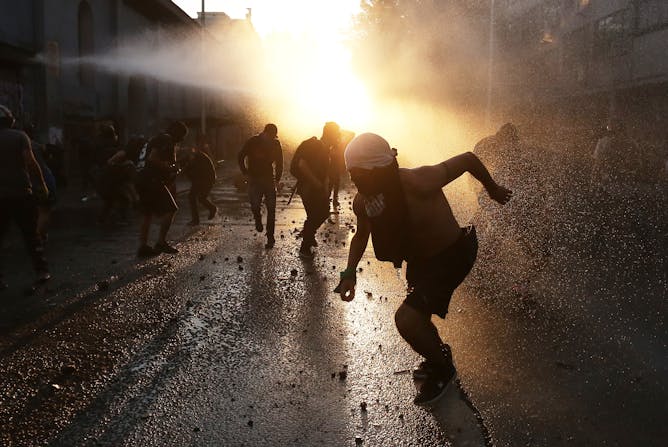
Protests in Santiago, Chile continued as 2019 drew to a close.
Elvis Gonzales/EPA
Feyzi Ismail, SOAS, University of London
What shape will global protests take in the 2020s?
|

Anger on the streets: protesters in al-Tayaran square in central Baghdad on October 4.
Murtaja Lateef/EPA
Balsam Mustafa, University of Birmingham
Why young Iraqis to took the streets in protests that left more than 100 people dead after a brutal suppression.
|
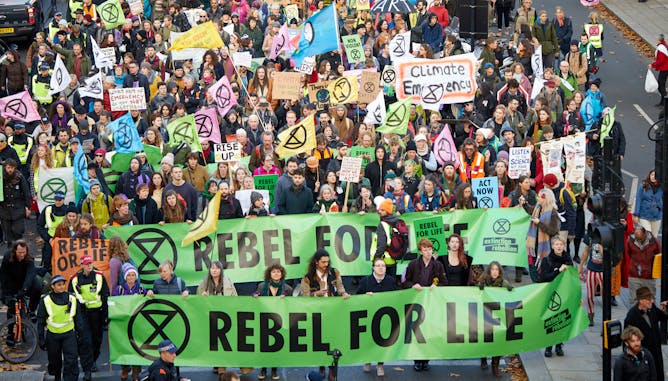
Supporters of Extinction Rebellion march in London.
Kevin J. Frost/Shutterstock
Charlie Gardner, University of Kent; Claire F.R. Wordley, University of Cambridge
The conventional channels for scientists to inform and influence policy are not addressing the climate and ecological crises quickly enough.
|
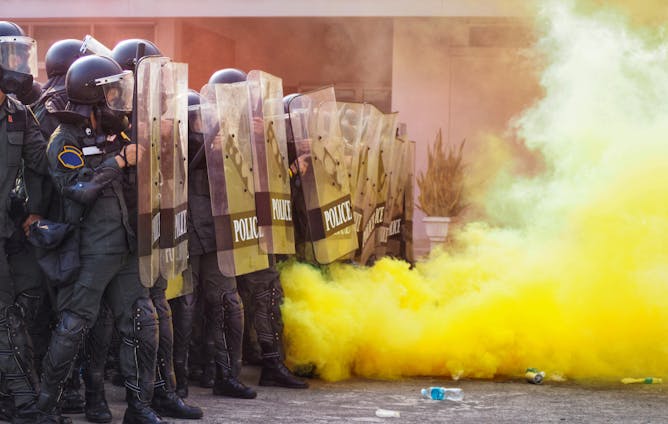
Fanning flames.
Shutterstock
Matthew Radburn, Keele University; Clifford Stott, Keele University
According to research, a strong sense of social identity and empowerment often dictates how rioters behave.
|
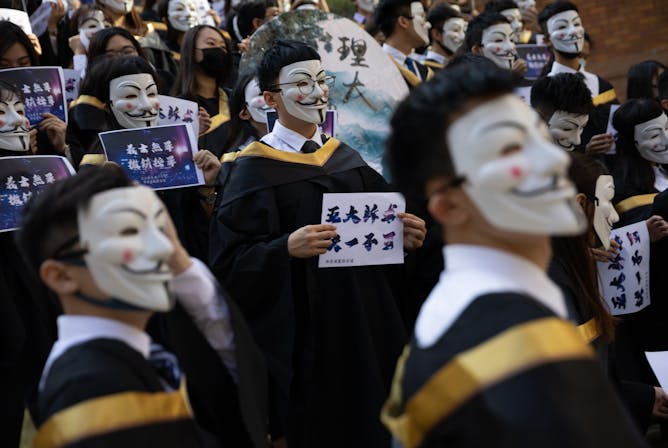
Students wear Guy Fawkes masks during a protest on November 5 in Hong Kong.
Jerome Favre/EPA
Aidan McGarry, Loughborough University
From Chile to Lebanon and Iraq to Hong Kong, the same masks have become a common language to register dissent.
|
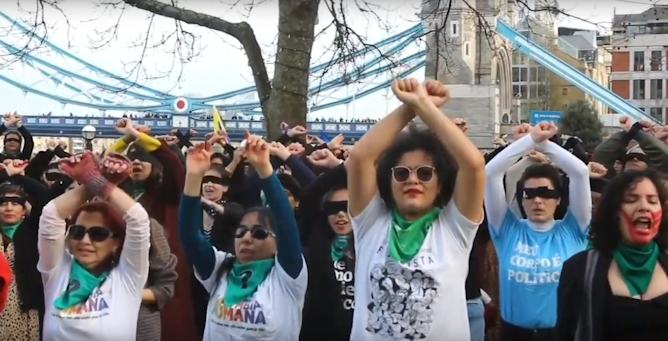
‘The rapist is you’ sung next to Tower Bridge on December 7.
Las Tesis Londres 7 December 2019
Athanasia Francis, University of Liverpool
A Chilean feminist anthem is being sung across the world in protest at violence against women.
|
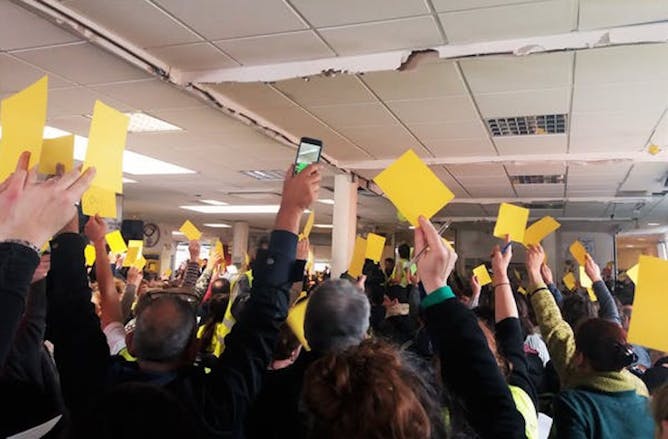
The ‘yellow vests’ vote at an assembly in Saint Nazaire, April 2019.
Elise Lobbedez
Elise Lobbedez, EM Lyon
Including direct accounts from 'yellow vests' members in the Lyon area, a look back at what has changed in the daily lives of people in the movement.
|
| |
Featured events
|

|
Ron Cooke Hub, Campus East, , York, York, YO10 5GE, United Kingdom of Great Britain and Northern Ireland — University of York
|

|
East Building 1.1, University of Bath, Claverton Down, Bath, Bath and North East Somerset, BA2 7AY, United Kingdom of Great Britain and Northern Ireland — University of Bath
|

|
Aston Triangle, Birmingham, Birmingham, B4 7ET, United Kingdom of Great Britain and Northern Ireland — Aston University
|
|
|
|
| |
| |
| |
| |
| |
|
|
|
|
|
|
|